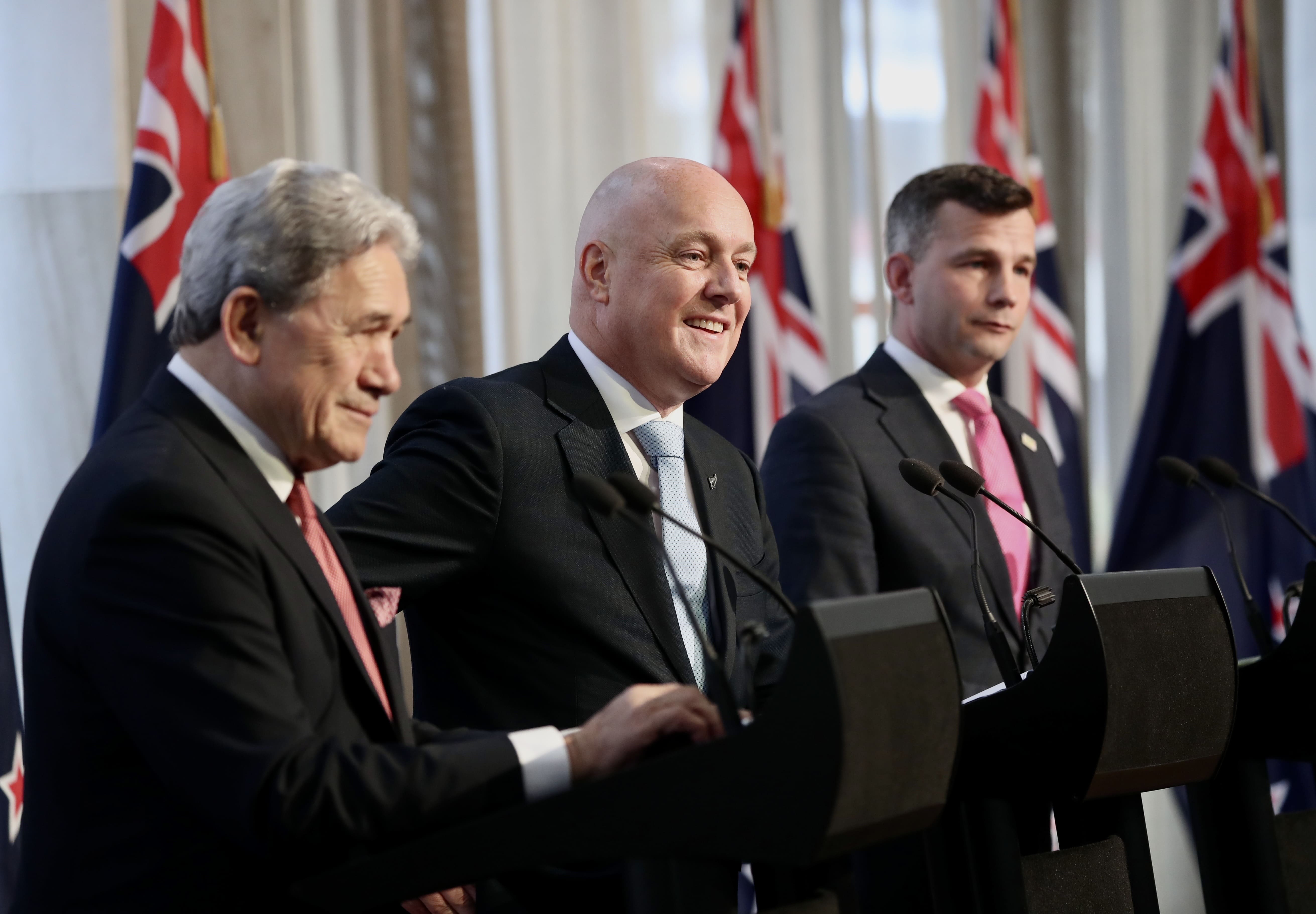
ACT leader, David Seymour has explained his reasoning behind his criticism of previous Government administrations during his State of the Nation speech delivered over the weekend.
Seymour accused the prior administrations of Prime Ministers Jacinda Ardern, John Key and Helen Clark of wasting the decades they collectively spent in power, claims he made during an address that also saw him defend his controversial Treaty Principles Bill.
He said previous Governments had been denying problems, governing without values and making bad policy.
Talking to The Mike Hosking Breakfast with Tim Dower this morning, Seymour offered clarity into his rationale behind attacking previous leaderships from both sides of the political spectrum.
He began by using house prices as an example of the division that he believes has worsened over prior decades and was one of the staple concerns amongst New Zealand residents. He said the polarization over prices had driven the division between generations.
Seymour then spoke about the interpretation of the Treaty of Waitangi - another divisive topic - expressing his disapproval at the fact some people believed they could block a vote due to their belief that there are two types of New Zealand citizenship.
He also compared education standards between now and at the start of the century.
"New Zealand's was so far up the lead tables - we were often number one in the lead categories and about number four overall, now we're nowhere near that," he told Tim Dower.
"All of those things where we really sat back and failed to make the progress we needed to, you add in productivity and our defence capability, and it seems we've had a couple of decades where we were really just kicking back, and we're now at one of those points where we've got official cut-backs."
Seymour said the good news was he believed his coalition Government, in collaboration with National and NZ First, would be up to the task of turning the country's fortunes around on his listed issues.

"I've tried to be leading an ACT party that's there to push as hard as it can, as quickly as it can to make up for those lost decades."
Dower asked what needed to be done differently by previous administrations, Seymour went into greater depth around his views on the country's housing crisis.
He said housing was all about resource management, land use and planning and that it shouldn't take longer to take permission "than to build the thing" - hence why the coalition Government was pushing reforms on resource and management.
"It's about infrastructure funding and financing, politicians don't like putting money underground because no politician got their photo taken with an underground pipe - although some people think some of us should," he said.
"We've got to change the way we do that. GST sharing - new vehicles for getting private financing into infrastructural projects used all around the world - uncontroversial here in New Zealand, we've got to wait until the Government or council can afford something."
Seymour said for the country to start seeing momentum gained on projects, there would need to be a breaking up of monopolies within the housing sector and have new builds follow private insurance schemes that skip the council consent hoops.
With all these changes implemented, the ACT leader said he was confident there would be shifts in the way the country's housing climate panned out over the coming decades.
"There's a whole lot of things we can do to make it easier to build homes," he said.
"Then you go through education, the treaty and so on and all of a sudden you get a picture of what it would look like to be a country that wants the next generation to stay here."
Finally, Seymour laid a quick word on the country's national defence - which he referenced in his State of the Nation speech by stating New Zealand had to become much braver in a dangerous world.
He compared the country's defence with Australia, which has spent 2% of its national GDP on the country's defence force with a view of increasing to 2.4% by the end of the decade.
For New Zealand, Seymour wants to see its national defence - which hovers around 1% of the GDP's investment - have its funding increased to 1.5% spend by 2027.
The number would ideally rise to meet Australia's current defence spend of 2% by the end of the decade.
"Even then, we wouldn't be keeping up but Japan is doing a major about-face after sixty years of basically being pacificist, heavily investing in defence," he said.
"That's in response to China - in fact, the whole of the pacific is becoming a more contested space."
Making a dig at the former Government's Foreign Affairs Minister, Nanaia Mahuta, Seymour claimed that somebody operating in such a role couldn't be focused on smaller policy problems occurring back on New Zealand shores.
"The fact is I don't think anybody has tried to be the Minister for Local Government and the Minister for Foreign Affairs," he said.
"You just can't be talking to people at the Buller Council on the West Coast one day, and then in Paris the next day. It's fiscally impossible. We seem to have disconnected from the world and this Government is now reconnecting."
When it comes to the Treaty, Seymour said during his speech, the country can either believe it created a partnership between races, as some say, or as the the Māori version reads, “ngā tikanga katoa rite tahi” – the same rights and duties. That is the fundamental question, he said.
He blamed the division around the Treaty on unelected bureaucrats and judges promoting a “partnership” interpretation of our founding document.
The speech was made at the start of the new political year, when Māori issues are being dominated by discussions on the Treaty of Waitangi, especially between Māori and the new three-party governing coalition of National, Act and NZ First, led by Prime Minister Christopher Luxon.
Speaking at Rātana this week, Luxon made it clear National won’t support the Treaty Principles Bill past the select committee stage.
Take your Radio, Podcasts and Music with you









